Calcium phosphate dibasic
Synonym(s):Calcium hydrogen phosphate;Calcium orthophosphate, Calcium phosphate dibasic;Calcium phosphate dibasic
- CAS NO.:7757-93-9
- Empirical Formula: CaHO4P
- Molecular Weight: 136.06
- MDL number: MFCD00010909
- EINECS: 231-826-1
- SAFETY DATA SHEET (SDS)
- Update Date: 2025-12-17 09:49:57

What is Calcium phosphate dibasic?
Description
Anhydrous dibasic calcium phosphate is nonhygroscopic and stable at room temperature. It does not hydrate to form the dihydrate. Anhydrous dibasic calcium phosphate is used in toothpaste and dentifrice formulations for its abrasive properties. Anhydrous dibasic calcium phosphate is used both as an excipient and as a source of calcium in nutritional supplements. It is used particularly in the nutritional/health food sectors. It is also used in pharmaceutical products because of its compaction properties, and the good flow properties of the coarse-grade material.
Chemical properties
Anhydrous dibasic calcium phosphate is a white, odorless, tasteless powder or crystalline solid. It occurs as triclinic crystals.
Physical properties
White triclinic crystal; density 2.92 g/cm3 (anhydrous) and 2.31 g/cm3 (dihy drate); hardness 3.5 Mohs; decomposes on heating; inosluble in water and alcohol; KSP 2.7x10-7; soluble in dilute mineral acid.
The Uses of Calcium phosphate dibasic
Dibasic calcium phosphate anhydrous is widely used in oral pharmaceutical products, food products, and toothpastes, and is generally regarded as a relatively nontoxic and nonirritant material. It is used as a feed additive for livestock and poultry. It can promote feed digestion, put on animal?s weight, raise laying rate or producing milk rate, cure diseases such as rickets, osteomalacia and anemia.
Production Methods
Calcium phosphates are usually prepared by reacting very pure phosphoric acid with calcium hydroxide, Ca(OH)2 obtained from limestone, in stoichiometric ratio in aqueous suspension followed by drying at a temperature that will allow the correct hydration state to be achieved. After drying, the coarse-grade material is obtained by means of a classification unit; the fine particle-size material is obtained by milling. Dibasic calcium phosphate, anhydrous, may also be prepared by spray-drying.
Definition
ChEBI: Calcium hydrogenphosphate is a calcium phosphate.
Agricultural Uses
Dicalcium phosphate (CaHPO4) is made from calcium carbonate and phosphoric acid. It contains 34% citrate- soluble phosphorus pentoxide (P2O5). It is not commonly used as a fertilizer, but is used as a supplement to animal feed.
Safety Profile
Skin and eye irritant. A nuisance dust.
Storage
Dibasic calcium phosphate anhydrous is a nonhygroscopic,
relatively stable material. Under conditions of high humidity it
does not hydrate to form the dihydrate.
The bulk material should be stored in a well-closed container in a
dry place.
Incompatibilities
Dibasic calcium phosphate should not be used to formulate
tetracyline antibiotics.
The surface of milled anhydrous dibasic calcium phosphate is
alkaline and consequently it should not be used with drugs that
are sensitive to alkaline pH. However, reports suggest there are
differences in the surface alkalinity/acidity between the milled and
unmilled grades of anhydrous dibasic calcium phosphate; the
unmilled form has an acidic surface environment. This difference
has important implications for drug stability, particularly when
reformulating from, e.g. roller compaction to direct compression,
when the particle size of the anhydrous dibasic calcium phosphate
might be expected to change.
Dibasic calcium phosphate dihydrate has been reported to be
incompatible with a number of drugs and excipients, and many of
these incompatibilities are expected to occur with dibasic calcium
phosphate, anhydrous; see Calcium phosphate, dibasic dihydrate.
Regulatory Status
GRAS listed. Accepted as a food additive in Europe. Included in the FDA Inactive Ingredients Database (oral capsules and tablets). Included in nonparenteral medicines licensed in Europe. Included in the Canadian List of Acceptable Non-medicinal Ingredients.
Properties of Calcium phosphate dibasic
| Melting point: | 370°C(decomposition) |
| Density | 2.306(16℃) |
| RTECS | TB8528000 |
| storage temp. | 2-8°C |
| solubility | Practically insoluble in water and in ethanol (96 per cent). It dissolves in dilute hydrochloric acid and in dilute nitric acid. |
| form | gel (aged) |
| color | White |
| PH | 7 (10g/l, H2O, 20°C) suspension |
| Water Solubility | Sparingly soluble in water, practically insoluble in cold water. |
| Merck | 13,1697 |
| Solubility Product Constant (Ksp) | pKsp: 7 |
| Stability: | Stable. Incompatible with strong oxidizing agents. |
| CAS DataBase Reference | 7757-93-9(CAS DataBase Reference) |
| EPA Substance Registry System | Calcium hydrogen phosphate (7757-93-9) |
Safety information for Calcium phosphate dibasic
Computed Descriptors for Calcium phosphate dibasic
| InChIKey | FUFJGUQYACFECW-UHFFFAOYSA-L |
Calcium phosphate dibasic manufacturer
Attar Global
Vasa Pharmachem Pvt Ltd. (VPPL)
Remedy Labs
New Products
4,4-Difluoropiperidine hydrochloride tert-butyl 9-methoxy-3-azaspiro[5.5]undecane-3-carboxylate Indole Methyl Resin N-Isopropylurea N,N-Dicyclohexylcarbodiimide(DCC) MELDRUMS ACID 5-METHYLISOXAZOLE-4-CARBOXYLIC ACID Magnessium Bis glycinate Zinc ascorbate 1-bromo-2-butyne 2-acetamidophenol 9(10H)-anthracenone Erythrosin B, 4-Piperidinopiperidine 2-((4-morpholinophenylamino) (methylthio) methylene) malononitrile 2,4-dihydroxybenzaldehyde 3-(4-morpholinophenylamino)-5-amino-1H-pyrazole-4-carbonitrile Methyl 2-methylquinoline-6-carboxylate 2,6-dichloro-4-nitropyridine 4-Bromo-2-chlorobenzonitrile 2-(benzylamino)acetic acid hydrochloride 4-(tert-Butoxycarbonylamino)but- 2-ynoic acid 3,4-dihydro-2H-benzo[b][1,4]dioxepine 1-Phenyl-1-cycloprppanecarboxylicacidRelated products of tetrahydrofuran
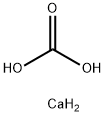


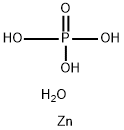



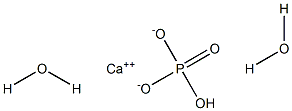
You may like
-
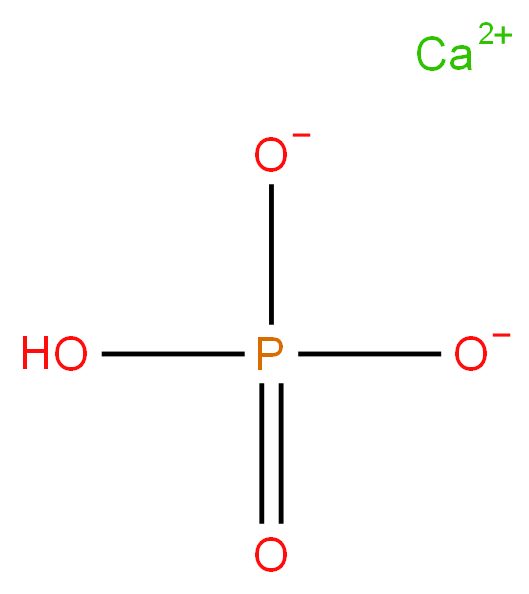 DI CALCIUM PHOSPHATE 99%View Details
DI CALCIUM PHOSPHATE 99%View Details -
 Calcium phosphate, dibasic 99%View Details
Calcium phosphate, dibasic 99%View Details -
 Calcium phosphate, dibasic 98%View Details
Calcium phosphate, dibasic 98%View Details -
 Calcium hydrogen phosphate, Anhydrous CAS 7757-93-9View Details
Calcium hydrogen phosphate, Anhydrous CAS 7757-93-9View Details
7757-93-9 -
 Calcium hydrogen phosphate, Anhydrous CAS 7757-93-9View Details
Calcium hydrogen phosphate, Anhydrous CAS 7757-93-9View Details
7757-93-9 -
 Calcium hydrogen phosphate, Anhydrous CAS 7757-93-9View Details
Calcium hydrogen phosphate, Anhydrous CAS 7757-93-9View Details
7757-93-9 -
 Calcium phosphate dibasic CAS 7757-93-9View Details
Calcium phosphate dibasic CAS 7757-93-9View Details
7757-93-9 -
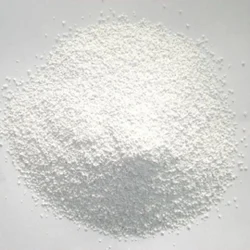 Dicalcium Phosphate USP Grade, 25/50 kg packingView Details
Dicalcium Phosphate USP Grade, 25/50 kg packingView Details
7757-93-9
